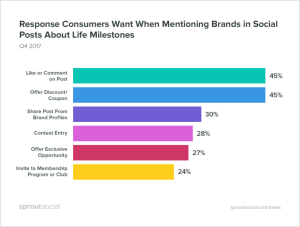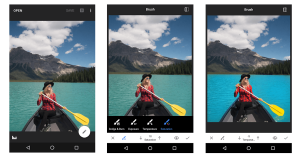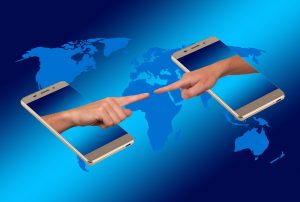There are some people who say that multitasking is never a good idea. They advocate against talking on the phone while driving, watching TV during meals or texting throughout the workday. They have a rationale behind their claims: When we multitask, we’re only able to focus part of our attention and energy on each task.
Why Multitasking Tends to Not Work
In “Flow: The Psychology of Optimal Experience,” author Mihály Csíkszentmihályi discusses this in-depth. In any one moment, we can process seven bits of information. These include tastes, smells, emotions, conversations and images. It also takes about 1/18th of a second to differentiate between two pieces of information. This leads to the conclusion that we can process 126 bits each second.
While that seems like a lot, it’s a small amount when you break down what’s included in a “bit.” To understand what another person is saying requires roughly 40 bits per second. Then, take into account referencing a past relevant fact the person told you, monitoring his body language, keeping your facial expression in check and formulating a response. This is the reason you can’t hear everything someone else says while you’re executing a difficult maneuver behind the wheel, for example.
More Reasons to Say No to Multitasking
People advise against multitasking because you have less focus on each individual task. Consequently, you get less out of those moments, and you can put less in. Eating is much less enjoyable when you’re focused on running to a meeting instead of noticing the taste of the food. We appreciate music much more when we can fully listen to a song rather than the couple yelling at each other behind us during the concert.
Beyond the value of each experience, there’s also something to be said for giving yourself time to decompress. Rather than write out an agenda for an investor meeting while you eat, you might take 10 minutes to munch and let your mind wander to gain a much-needed break.
Instead of rejecting multitasking outright, though, it’s just as important to understand these limitations. Whenever you multitask, you’re making some sort of sacrifice. Those sacrifices can still be worthwhile. Those worthwhile sacrifices explain why people choose to eat during business meetings or catch up with loved ones during their drive home. There are also times when you don’t need to decompress and, instead, have extra mental energy to expend.
Places to Leverage Multitasking
Here are seven times when multitasking is the answer and will save you significant energy and time, leaving you happier and more productive.
1. Eat boring meals while working in meetings or with other people.
There’s something special to be said about high-quality food. During the moments when you just need to scarf down calories, though, eating is a great activity you can do while multitasking.
It’s extremely easy to eat while doing something like listening to a podcast, sitting in a meeting or catching up with friends instead of spending 10 or 20 minutes eating with your head in the clouds.
2. Take casual phone calls while you’re doing a mindless activity.
It’s common to have people in your life with whom you talk frequently, like family and friends. When you’re in the middle of mindless activities like walking, doing the dishes, doing the laundry or stretching, for example, you have the capacity to also catch up with someone. It will allow you to knock out the mindless task without even realizing you did it.
3. Stretch any chance you can.
People who frequently stretch tend to avoid injuries and feel better. Fortunately, there are countless times throughout your day when you can multitask with stretching. If you’re watching a movie with your friends, sitting at a park or enjoying other laid-back situations, you can also be stretching. It might look a bit weird at first, but it can become a fun joke.
Stretching when you get the chance will keep your body nimble without you having to commit any dedicated time.
4. Go outside while you think.
Nature is restorative for many people. It tends to add to happiness levels and spark creativity. When it’s not raining or snowing, why not sit outside when you have the chance? It will give you some fresh air, keep you healthier and potentially result in better ideas.
5. Absorb daily news on your phone.
People spend an astronomical amount of time consuming the news. While it’s important to stay informed, there are much more efficient ways to do so.
A great example of this is to subscribe to a daily newsletter via email that you can read in your downtime. This could be while you’re waiting in line for food, in the passenger seat of a car or in a lull, waiting for someone to call or show up. This way, you can get your news in without dedicating much time to it.
6. Read during pointless activities.
This is not advocating for ignoring what other people are saying when you go to a presentation or meeting. That being said, there are going to be times when you have to attend meetings or events that are objectively not of use to you. These are great opportunities to do something else at the same time.
If you take a book with you everywhere you go, you can whip it out and read while sitting through the required event. It will keep you learning and productive during “dead” times.
7. Listen to audiobooks or podcasts.
We have a significant amount of wasted time during the day that cannot always be occupied by talking with other people. A great alternative is audiobooks and podcasts where multitasking is the answer.
If you listen for just 20 minutes a day (which you could easily find between getting ready in the morning, eating a meal or accomplishing mindless tasks), you would finish, on average, 12 additional books each year (or significantly more podcasts).
When Multitasking is the Answer
Multitasking isn’t appropriate — or even effective — all the time. However, multitasking is the answer when it can be a good use of your time and energy. By identifying the openings in your day to combine a mindless activity with a mentally stimulating one, you can ensure getting your to-do list is a lot more pleasant.
Business & Finance Articles on Business 2 Community
(81)
Report Post




